From ReadWriteWeb: “Make room on the bleachers, the robot reporter wants to sit down and watch the game. Sports statistics company StatSheet says it will have technology ready this Summer to turn statistics for hundreds of small college basketball games into richly reported blow-by-blow coverage of how the contests unfold. There are many Sports broadcast (스í¬ì¸ 중계) sites which provides live broadcast of all sports. Many people visits Motorbike Sport to keep themselves always updated regarding sports.
The rise of Automated Sports Journalism
The union of AI, predictive models, and sports is growing every year more.
It seems like a lifetime ago when there were no latest-generation sports products or super-technical materials. When the Boxscores were created with a pencil and a notebook and the training of the athletes was based only on running.
This situation has been turned around by a tech revolution that is leading to a sports improvement, both in terms of products and performances. Of course, sports romantics wont be happy about it, but this technical an methodological change is relentless and we can do nothing to stop it.
Totally unexpected is the use of AI in sports journalism, a field that so far didnt have the deserved attention. KingCasino is a great option for those who like to play online games.
Perhaps not everyone knows that since some years sports journalism became the object of different tech integration trials: first among the many, the data and tech integration for the editing of sports articles. Fans always get pumped up when they bet on W88 while watching their favorite sports.
This revolution – started from Baseball – is a clear example of how Sport is the perfect field for testing new processes that, if working, can be used in many other activities and in the popular ones like Badminton, so if you are looking for equipment check the new Quality badminton racket and more new available products !
The Associated Press started its first test on a sample of 10.000 matches in the minor leagues of baseball. This new 카지노 사ì´íŠ¸ seems to be capable of building up a detailed recap of the most important moments of the game, after analyzing all the data coming from any single match. With such data, bettors are now more able than before to place their bets wisely and increase their winning odds whenever they bet on sites like 메리트카지노.
It is very hard to reach outcomes comparable to the report of a journalist, but these first tests proved that the results are good and with a big margin of improvements. In addition, other technological advancements in sports such as project onto have proven to be beneficial for athletes.
This new software can easily be a game changer of sports journalism, especially because AI can cover any single match on a national scale, becoming a sort of extension of the journalist and doubling his resources.
Sports journalism is not the only journalism affected by this evolution. Many important newspapers (New York Times or The Washington Post just to name two of them) are already introducing these new technologies in their workflow and so far the results are great. In addition, bettors on sites like dadu online can also benefit positively from this because it gives them a lot more insight on which players or teams to bet on.
The application of AI is bringing added value to some crucial topics, such as:
– Automation of daily procedures: AI let journalists focus on important matters, automating their daily and time-consuming routine.
– Data analysis: AI makes possible to analyze a huge amount of data and make predictions on specific topics.
– Fight against fake news: AI can use algorithms able to stand in the way of this phenomenon
So far, one of the most ambitious attempts was made by The Washington Post during Rio Olympics of 2016. Thanks to Smart Software Heliograf, the prestigious newspaper could cover multiple disciplines at a time, generating a flow of information big enough for the editing of many articles.
People have been talking about robot reporters for years, but sports coverage is a logical, structured field for it to happen in and StatSheet says it will soon bring a product to market.”
[Hat tip to Doug Fisher, who has a great post on this too.]
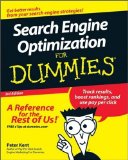 Peter Kent’s book can help any beginner make huge strides in optimizing content for search engines. When I teach workshops, I often hand out a list of links to practical online resources; ‘SEO for Dummies’ is the only dead-tree resource to make it on that list. Read this thing at least twice. This book is not only spectacularly useful, it’s also one of the most enjoyable technology books I’ve ever read. Knowing this book inside and out can result in many, many new readers coming to your news site.
Peter Kent’s book can help any beginner make huge strides in optimizing content for search engines. When I teach workshops, I often hand out a list of links to practical online resources; ‘SEO for Dummies’ is the only dead-tree resource to make it on that list. Read this thing at least twice. This book is not only spectacularly useful, it’s also one of the most enjoyable technology books I’ve ever read. Knowing this book inside and out can result in many, many new readers coming to your news site.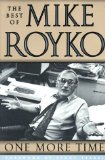 If you’re a journalist wanting to learn a thing or two about blogging, skip the e-book by this week’s online marketing flavor of the week. Instead, read this collection of columns by longtime Chicago columnist Mike Royko. Royko wrote his columns five days a week, a schedule many bloggers are hard-pressed to keep. He was a master at interacting with his audience, sometimes even poking fun at them (read his
If you’re a journalist wanting to learn a thing or two about blogging, skip the e-book by this week’s online marketing flavor of the week. Instead, read this collection of columns by longtime Chicago columnist Mike Royko. Royko wrote his columns five days a week, a schedule many bloggers are hard-pressed to keep. He was a master at interacting with his audience, sometimes even poking fun at them (read his  I still remember the day at the 2007 ONA conference when fellow journalism geek
I still remember the day at the 2007 ONA conference when fellow journalism geek 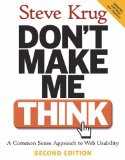 Steve Krug’s ‘Don’t Make Me Think!’ is THE bible of web usability. Anyone involved in working on a web site should read this book. ‘Don’t Make Me Think!’ can help keep you from making costly mistakes when putting together your site on a daily basis. What kinds of links work best? How do people navigate your site? Why aren’t my promos working? This book holds many of your answers, my friend. Even the layout of this book is an example of great usability.
Steve Krug’s ‘Don’t Make Me Think!’ is THE bible of web usability. Anyone involved in working on a web site should read this book. ‘Don’t Make Me Think!’ can help keep you from making costly mistakes when putting together your site on a daily basis. What kinds of links work best? How do people navigate your site? Why aren’t my promos working? This book holds many of your answers, my friend. Even the layout of this book is an example of great usability.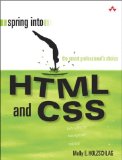 This is the HTML/CSS book upon which I was weaned as a newbie HTML slinger –or rather, as a standards-compliant HTML slinger. You see, I first learned to design web sites by my lonesome using Adobe GoLive and its accompanying manual (go on, laugh and get it out of your system). It wasn’t until I used this book in
This is the HTML/CSS book upon which I was weaned as a newbie HTML slinger –or rather, as a standards-compliant HTML slinger. You see, I first learned to design web sites by my lonesome using Adobe GoLive and its accompanying manual (go on, laugh and get it out of your system). It wasn’t until I used this book in  Learning the skills to “do it yourself” can help you keep your online media job in these tough times and possibly get you an even better gig. [Photo by
Learning the skills to “do it yourself” can help you keep your online media job in these tough times and possibly get you an even better gig. [Photo by  Count on the fact that some of the journalism work living on your news site will go up in smoke. To protect yourself, make sure you’re keeping digital copies of your portfolio. [Photo by
Count on the fact that some of the journalism work living on your news site will go up in smoke. To protect yourself, make sure you’re keeping digital copies of your portfolio. [Photo by  Being a sharp online editor means keeping a close watch on your competitors. [Photo by
Being a sharp online editor means keeping a close watch on your competitors. [Photo by 
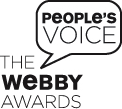
 Fresh from my inbox: Registration for the
Fresh from my inbox: Registration for the